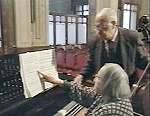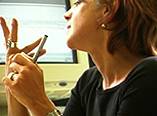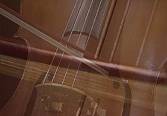- Farewell UNICA News magazine - Max Hänsli
- On the 50th Anniversary of CICT - Serge Michel
- UNICA 2008 - Observations - by Rolf Mandolesi
- UNICA 2008 - Report - by Ivo Dasek
- UNICA 2008 in Tunisia - Max Hänsli
- UNICA Committee Meeting in Mettlach - Max Hänsli
- UNICA 2009 - Gdansk
- UNICA 2010 - Einsiedeln
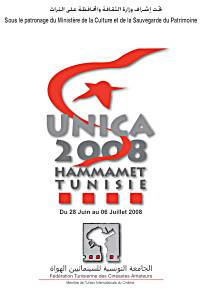 It became clear two years ago, when we had the UNICA congress
in Korea, that all UNICAs are indeed very different from each other. This
year's UNICA in Tunisia has broadly confirmed this observation. But what
was really so different ?
It became clear two years ago, when we had the UNICA congress
in Korea, that all UNICAs are indeed very different from each other. This
year's UNICA in Tunisia has broadly confirmed this observation. But what
was really so different ?
- we encountered a new culture
- some of us learned the art of camel-riding
- we know what it is like to see the thermometer rise above 40°C
- and then how pleasant it can be to have a drink in an air-conditioned reception hall
- we enjoyed an impressive opening ceremony and a delicious meal served under a tent for the closing ceremony
- we had two half-day excursions with a rich programme that could please everyone of us
- and we were accommodated in a splendid hotel complex at the seaside so that it was the first UNICA combined with beach activities.
It is always pleasant to hear many people say on the day of departure that UNICA 2008 was indeed a great event that will surely enter the history of UNICA.
Screenings took place in a well-equipped hall in the hotel and we felt comfortable watching films in this air-conditioned space. However, it appeared once again that video is not a guarantee for smooth projection. The technical team found it hard on several occasions to identify the proper frame format - mostly because of a lack of information on cassettes. This situation calls for emergency measures to make sure that the instructions provided are worded as clearly and consistently as possible, in association with the projection numbers.
As the UNICA congress took place this year - for reasons we all know - two months earlier than usual, we had some communication problems concerning the data without which organisers cannot operate properly. This is an issue that should be addressed.
For the first time, the World Minute Movie Cup was organised in the open air - in an arena. The show - that is probably the best term to apply to the event - started at 09:30 p.m., with a large Tunisian audience that could hardly be ignored. The scene was reminiscent of a soccer stadium … which some people did not really like. And yet it was a festival in the true sense of the word, a form of celebration for film-makers that was also a premiere for most of us. No one will forget it.
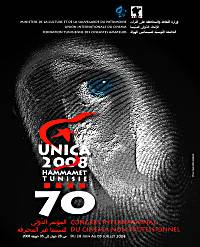 And then there was the Annual General Meeting which, by comparison
with previous years, was sparsely attended. The reason for that was rather
obvious, with an attractive beach just next door. This meeting went smoothly.
All the reports were adopted unanimously. The new version of the Statutes
- drafted by Georges Fondeur - was also found satisfactory by all delegates
and adopted with no objections.
And then there was the Annual General Meeting which, by comparison
with previous years, was sparsely attended. The reason for that was rather
obvious, with an attractive beach just next door. This meeting went smoothly.
All the reports were adopted unanimously. The new version of the Statutes
- drafted by Georges Fondeur - was also found satisfactory by all delegates
and adopted with no objections.
As IFTC (an umbrella organization within UNESCO that harbours UNICA among other institutions) celebrated its 50th anniversary, UNICA offered a large cake and all UNICA participants were able to enjoy a piece of it … provided they still had some appetite after the meal. This birthday celebration was part of the closing ceremony.
And as every year, as the last item on the programme of the UNICA 2008 Congress, the UNICA flag was handed over to next year's organizer, namely POLAND (Danzig/Gdansk). And Gdansk is definitely worth a visit ! All potential participants will receive in autumn an invitation with information on hotel accommodation, prices and all relevant data. We already wish all the best to UNICA 2009!.
Our conclusion is of course words of thanks for the organizers of the UNICA 2008 congress in Hammamet.
UNICA 2008 has indeed been a success. It opened a window on a new culture. We made new friends, even if we did not always speak the same language. It proved once again that each UNICA is different from the previous and offers a wealth of new experiences.
Warm thanks to all those who contributed to the success of this event.
Max Hänsli (CHE), UNICA president
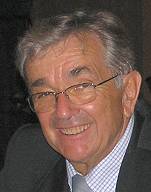
UNICA Committee Meeting, September 26-28th 2008
in Mettlach (Deu)
This time our host was Wolfgang Freier working in co-operation with the Federation of Saarland and the Board of BDFA (German Federation). We take this opportunity to express our gratitude to all the organisers for their hospitality and for the entertainment. Thank you very much.
Let us comment some of the items on the agenda:
Opportunity for authors not affiliated to any national federation to participate in UNICA festivals.
We receive more and more requests and the only answer that we can provide is that such requests for participation should be submitted via national federation (cf. Statutes).
New Statutes coming into force.
The draft statutes were approved at the last AGM. The UIICA Committee has declared that they come into force on Jan. 01, 2009.
Retrospective on UNICA 2008 in Hammamet.
A protracted discussion was devoted to this item on the agenda. Once again, we could observe that each UNICA Congress has many features of its own and participants should show greater tolerance and open-mindedness.
The environment and comfort offered by the hotels was ideal. It was possible to hold all the UNICA events within the precincts of the hotel consortium. Delegates definitely collected a wealth of happy memories during the excursions. It was also clearl that many participants had combined the UNICA Congress with a vacation - so much so that attendance in the projection hall was slightly affected.
Perhaps the programme for the opening and closing ceremonies could have been richer with some somewhat more forceful entertainment acts. But this shortcoming was largely compensated by the two evening events at the end of the half-day excursions.
In short: it was a very interesting UNICA Festival that gave us the opportunity to discover new aspects of a rich culture which was probably new to a majority of participants.
UNICA 2009 Gdansk/Dazig (POL)
Here, preparations are in full swing for 4th - 13th September 2009. Please note that UNICA is one day longer than in recent years, as it used to be in the past. During December and January everyone who has previously attended will be sent written details from Poland about hotel reservations (with special prices for UNICA) and arrangements for buying the congress card.
UNICA 2010, 2011 and 2012
Switzerland is lined up for 2010 (at the time of the meeting the host town was not confirmed but it will be Einsiedeln.)
In 2011 Luxembourg will host the event - more details in the near future.
In 2012 we hope to hold UNICA in Rousse (Bulgaria), but this still needs discussion and to receive approval during UNICA 2009 in Gdansk after the UNICA committee has visited the proposed venue.
UNICA News
As usual in our meetings, this item was the subject of a long discussion during the Committee meeting. The members decided that UNICA News will be published this year in the usual form. However, from January 01, 2009, the UNICA NEWS will be published on the Internet site of UNICA (www.unica-web.com). As a consequence, all the recipients who have an Internet connection will have direct access to this information. All the other recipients will receive the document by regular post, as has been done until now. But the document will not be circulated in the form of the current brochure, but as copies of the Internet publication.
If you receive the booklet by standard post, but also have an Internet connection, please let us know. This will help us to make economies.
Discussions and jury sessions at UNICA Competitions
It was suggested that this important topic be submitted to a thorough discussion during the next Committee meeting in April 2009. The purpose of this suggestion is that we should find ways to have more detailed analyses from the members of the jury about individual films.
The Committee is willing to find solutions for this issue. The goal is to have the jury members provide a more specific evaluation of the films to the authors. We will inform you about the results of this discussion after the meeting - via the Internet or regular post!!!
Committee Elections at UNICA 2009 in Gdansk/Danzig
National federations are hereby requested to nominate their candidates for the elections. The name of the candidates should be forwarded to the Secretary-general before March 31, 2009. The nominations should be supported by a statement in which the national federation promotes the candidate (biographical data, proficiency in foreign languages, etc.) The Committee - so far - has been informed of one one retirement - that of the President, as has already been announced. The current UNICA Committee promotes Georges Fondeur from Luxembourg as the new president. All the other Committee members are running for re-election.
The Committee kindly request all federations to inform us about new candidates in due time.
The Mettlach meeting was very profitable. It was really worth while debating all these issues, listening to all opinions and making important decisions in the interests of UNICA.
On behalf of the UNICA Committee - Max Hänsli (President)
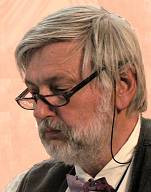
Farewell UNICA News
magazine
Following a decision by the Committee of UNICA, information about UNICA
activities will no longer be disseminated via the "UNICA News magazine".
As a consequence, we say good-bye to what had become a long and well-established
tradition. But I suppose we have to turn to the future and I trust you understand
the need for this change.
As from January 2009 information about UNICA will be published on the UNICA Website. These Internet publications will be accessible by logging in to www.unica-news.com. If you do not have an Internet connection, we will try to transfer this information in summary form by standard mail. I beg for some patience until the new procedure is implemented.
I would also like to take this opportunity to express our gratitude to Ctirad (Radek) Stipl for the enormous job he has carried out for so many years as the person in charge of the printing. When we launched this UNICA News project a long time ago, Radek made an offer for the composition of the magazine that was very attractive. We should thank him warmly for this too.
Maybe some of you will miss this magazine. But we hope that the substitutes will be found acceptable, especially for those who have no Internet connection.
This word of thanks also goes to all those who provided articles and helped us keep you well-informed. Thank you so much.
- Max Hänsli (CHE), Tel. +41 44 3421066, <mhaensli@rcm.ch>
THIS IS THE LAST ISSUE OF THE UNCA-NEWS!
As already mentioned, this will be the last issue of our newsletter. Beginning in 2009 - as announced, the information will be circulated via Internet. You can access them on the Web by logging in at www.unica-web.com. The national federations will receive the information by e-mail so that they can transfer them to the clubs and their members.
Material to be published in the News should be sent to a.i.urbanek@utanet.at Alois Urbanek will then submit a summary of this information to the UNICA Webmaster.
The Friends of UNICA will be informed by Fred Graber. This is an additional possibility offered to the members who have an Internet connection: please turn to Fred Graber if need be.
All the other people who received the UNICA-News but do not have an Internet connection, they can have the information sent to them by standard mail by applying to: Rolf Mandolesi, Via Speckbacher, 5, I-39012 Merano/BZ (ITA)
The Committee of UNICA hopes that this new procedure will meet everbody's wishes and requirements.
- The UNICA Committee
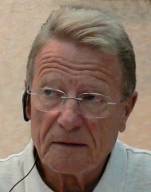
Following UNICA 2008
Observations by Rolf Mandolesi
The objective of UNICA is, as we all know, to promote understanding among peoples and also co-operation in the area of art and culture. Consequently, when UNICA is organised in a country with more modest resources and if there are some hitches in the organization, we should be prepared to write the word tolerance using somewhat larger letters - though there is surely a limit to everything: the fact that the catalogue was distributed at the very end of projections was really a bit thick.
And yet if we consider what we had on the other side of the scale the quality of the cultural program - in particular the two half-day excursions and the World Minute Movie cup staged in an open-air amphitheatre - I think we can say that, at the end of the day, it was really worth while going to Tunisia.
I must confess that I have been somewhat troubles by two events: the strategy adopted for the appointment of the president of the jury and the general trends the jury showed in evaluating non-commercial films (in my opinion, of slightly lower quality than last year's) and the comments made during the public discussion.
Let us examine these points.
It was established during the first Committee meeting held in the afternoon of June 28 that Jef Van Gompel of Belgium would be appointed as the president of the jury for this year's UNICA competition - a role that is traditionally devolved to the member of the jury who has most experience concerning UNICA Competitions and good mastery of several languages. And yet, the same evening, when the panel was officially introduced in the hall, we heard to our surprise that Mrs Selma Baccar of Tunisia had been appointed president. I was told later that some political pressure had been applied from the top. And then on Saturday July 5th, Mrs Baccar, at the beginning of the public jury meeting, thanked her colleagues for "the confidence and the honour bestowed on her when appointing her chairperson of the jury."
But let us now turn to the second point. What apparently has been forgotten by many authors and members of the jury alike, is the very concept of short film made by amateur or non-professional or independent film-makers: namely the fact of using one's freedom to approach problems, situations, experiments and so on, in a creative and therefore artistic way. The other side of that coin is that they should refrain from imitating professional films, whether in the selection of themes and the style of film language, or TV programmes including interviews and interviews, and these films should be judged consequently.
Recently, when I was in Montecatini, I was able to watch films produced by
1st and 2nd semester students of the Hamburger Medienschule in Germany. Although
these students aim to become professionals, they were required to produce
at the end of the first semester a video containing absolutely no dialogue
or word of comment. On the other hand these ingredients could be included
in the work for the end of the 2nd semester. As a result: all the works produced
at the end of the 1st semester were definitely richer in original ideas and
imagination than those for which spoken text was allowed.
| When we saw, for instance, that the film Aus der Seele -
which was only 7-minutes long, had no dialogue, but symbolised defiance of
dictatorship by means of subtle metaphors (a jury member wondered "whether
this film had a political message") - was awarded no more than bronze, as
opposed to the film Brücken bauen, a 24-minute documentary
film in pure TV style, with a distribution of sweets and other small gifts
to the children of the Roma community, a commentary meant to fill the gaps
and to activate the tear glands of all spectators - including the jury members,
was awarded gold in the second round, we have good reasons to have some doubts.
It was also unclear why the Iranian film At 8 a.m. (see it here) or the Hungarian film Resolution (Miklós Falvay) was not selected for the final discussion. This final discussion with the evaluation of films also left to be desired. Some jury members were content with "re-telling" the story rather than really analyzing things. And, as a whole, in to my opinion, far too many medals were awarded. |
I had published in the UNICA News in 2006 a study covering the previous 7 years and it showed that the percentage of medals compared to the number of films brought to the final discussion had climbed from 58 to 98%. In 2007, the figure fell to 82% but rose again this year to 92%.
Conclusion:
The federations that offered the most interesting programmes have been - in my opinion and in this order - Hungary, Iran and Croatia, with films that were just a few minutes long, based on solid and well structured shots, having in most cases just the original sound track and no dialogue or word of comment, and yet conveyed pungent and clear messages to all.
- Rolf Mandolesi (ITA)
 by
Ivo Dasek
by
Ivo Dasek
UNICA 2008 took place between the 28th June and 5th July in the well-known Tunisian coastal city of Hammamet. 258 film makers and visitors from different nations took part in the event. As all participants were accommodated in the same hotel complex and the presentation hall and banquet halls were in the main hotel, it was not far to either the cinema or the beach.
142 films from 33 UNICA countries were in competition and assessed by the seven-member international jury:
- Selma Baccar (jury leader) from Tunisia
- Bengt Andersson from Sweden
- Hassan Dezvareh from Iran
- Michael Gough from England
- Pawel Leski from Poland
- Kees Tervoort from Holland
- and Jef van Gompel from Belgium.
In preliminary private selection sessions, they chose 48 films for the main public discussion. 7 gold, 13 silver and 24 bronze medals were awarded among them. Croatia got the prize for the Best National Programme. More than half the entries were of an unusually high standard. Some of them stick in the memory:
The Croatian film Stonoga (Centipede) showed the hard and laborious work of lumberjacks in mountain forests. They still work in a primitive way without mechanisation. They use oxen to transport enormous tree-trunks and must overcome numerous obstacles in the steep and swampy terrain. The picture convincingly documents the merciless driving and control of the animals.
The Spanish film La Chiquita Piconera (Little Piconera) was made to professional standards and based on a historic story set in the city of Cordoba. A famous painter falls in love with a girl, who sits for him as a model. The affair was so famous that their portraits were later shown on banknotes. (Watch this film in three parts on YouTube starting here.)
The Austrian film Brücken bauen (Building Bridges) gave us a close insight into the needy and primitive life of the Romanian Roma on the outskirts of a city - living in ruined houses and cottages without power, water and sanitary facilities. A Tyrolean relief organisation is dedicated to improving those miserable conditions and especially to supporting and equipping schools for the children.
It is worth mentioning the English film Heatwave which combined live and animated work and was honoured with a silver medal. A simple farmer and inventor is invited by government officials to save England from the dangerously rising sea-levels caused by melting glaciers, which threatens to inundate the whole landscape. The film is an excellent example of classic British humour full of many gimmicks and tricks as well as comic encounters with the villain, who is causing the disaster. The author made outstanding use of the possibilities of modern computer technology.
The One-Minute film competition is always very popular and well attended. Of the 29 registered films, the 13 least accomplished were excluded. The Tunisian film Entre deux maux (Between two Evils) won the first prize, the second was the German film Bettgesprach (Bedtime Conversations). Two films tied for the third position: the Slovak film Lovec about hunters and the Lithuanian film Forest Fairy Tale.
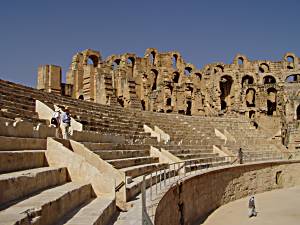 The nightly discussion session about the films shown was not
led as in earlier times by jury members, but by a polyglot official. The
content and course of the conversations were disappointing for many of us.
Only the works of film makers who were present were discussed and that meant
almost none. The film maker was placed in front of the public, so that she
or he could comment on their film and perhaps answer questions. This was
often restricted, however, to explaining films which had not been fully
understood and to general superficial praise. Sound analysis and criticism
of the works were missing, so it was not a very gripping discussion. The
discussions with the audience should be better organised and led in the future.
The nightly discussion session about the films shown was not
led as in earlier times by jury members, but by a polyglot official. The
content and course of the conversations were disappointing for many of us.
Only the works of film makers who were present were discussed and that meant
almost none. The film maker was placed in front of the public, so that she
or he could comment on their film and perhaps answer questions. This was
often restricted, however, to explaining films which had not been fully
understood and to general superficial praise. Sound analysis and criticism
of the works were missing, so it was not a very gripping discussion. The
discussions with the audience should be better organised and led in the future.
There was a degree of chaos in the organisation of the whole occasion and detailed information about particular events was often missing. Unfortunately when we registered at reception we did not get a programme with details of the films, the timetable and other information. We were assured they would arrive soon. The programme was ready and distributed only one week later, 15 minutes before the festival prizes were announced and presented! Obviously things are done differently in Africa, some matters take somewhat longer. Nevertheless UNICA in Hammamet was a success, two trips to Tunis and Kairouan to historic sights were instructive, the sun shone the whole day, the sea water was an agreeable temperature. We are already looking forward to UNICA 2009 in Polish Gdansk.
- Ing. Ivo V. Dašek (CHE)
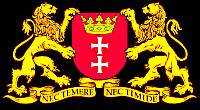 Gdansk is the Polish maritime capital with a population nearing
half a million. It is a large centre of economic life, science, culture and
a popular tourist destination. Lying on the Bay of Gdansk and the southern
cost of the Baltic Sea, the city is a thousand years old. With its Hanseatic
tradition, it has for ages played a major role in the commercial relationships
between Northern and Western Europe on the one hand, and the countries of
Central and Eastern Europe on the other hand.
Gdansk is the Polish maritime capital with a population nearing
half a million. It is a large centre of economic life, science, culture and
a popular tourist destination. Lying on the Bay of Gdansk and the southern
cost of the Baltic Sea, the city is a thousand years old. With its Hanseatic
tradition, it has for ages played a major role in the commercial relationships
between Northern and Western Europe on the one hand, and the countries of
Central and Eastern Europe on the other hand.
Today, Gdansk is the capital of the Pomeranian province and an important administration centre. Nature was very generous here. Sprawling on the southern Baltic coast, Gdansk gains a lot thanks to its background of the picturesque Tri-City Landscape Park and the hills and lakes of the "Kashubian Switzerland" district.
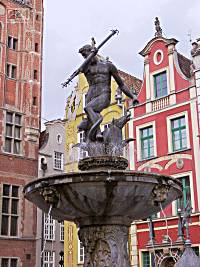 What is on offer to those who seek a seaside holiday comprises
twenty three kilometres of clean beaches, three organised bathing grounds,
and a 130-metre long pier. These are supplemented by such other outdoor
attractions as the Gdansk cycle tracks, zoological gardens, the famous Oliwa
Park with its ancient trees, the "Gdansk Fortress" Culture Park of City
Fortifications with unique authentic military architecture, numerous parks
and city squares and the nature reserves of Sobieszewo Island. The list is
far from complete. The heart of the Old City features a yacht marina. Amateurs
of water sports can indulge in their pastime out in the Bay of Gdansk or
along the Motlawa Arm, an exquisite watercourse for canoeing or kayak escapades.
What is on offer to those who seek a seaside holiday comprises
twenty three kilometres of clean beaches, three organised bathing grounds,
and a 130-metre long pier. These are supplemented by such other outdoor
attractions as the Gdansk cycle tracks, zoological gardens, the famous Oliwa
Park with its ancient trees, the "Gdansk Fortress" Culture Park of City
Fortifications with unique authentic military architecture, numerous parks
and city squares and the nature reserves of Sobieszewo Island. The list is
far from complete. The heart of the Old City features a yacht marina. Amateurs
of water sports can indulge in their pastime out in the Bay of Gdansk or
along the Motlawa Arm, an exquisite watercourse for canoeing or kayak escapades.
Always hospitable, Gdansk welcomes visitors to its charming lanes and historic interiors, bathing grounds on the sea and sailing courses, comfortable hotels, elegant restaurants, and cosy cafes. The city has several theatres, a philharmonic hall, opera house, outdoor summer musical stage, three multi-cinema complexes and several smaller cinemas, popular night clubs, pubs,and discos.
Its numerous museums, concerts, fairs, exhibitions, and street theatrical events complete the broad spectrum of the city's cultural offerings. Everyone will find something to his/her liking, irrespective of interests or mood.
Order of Projection at UNICA 2009
| 01 | Poland | POL | 75 minutes | 16 | Macedonia | MAC | 60 minutes | |
| 02 | Italy | ITA | 70 minutes | 17 | Slovenia | SLO | 60 minutes | |
| 03 | Austria | AUT | 60 minutes | 18 | Switzerland | CHE | 70 minutes | |
| 04 | Estonia | EST | 60 minutes | 19 | Sweden | SWE | 65 minutes | |
| 05 | Germany | DEU | 65 minutes | 20 | Hungary | HUN | 65 minutes | |
| 06 | Korea | KOR | 75 minutes | 21 | Tunisia | TUN | 65 minutes | |
| 07 | Liechtenstein | LIE | 75 minutes | 22 | Slovakia | SVK | 60 minutes | |
| 08 | Netherlands | NDL | 65 minutes | 23 | Czechia | CZE | 60 minutes | |
| 09 | Russia | RUS | 60 minutes | 24 | Spain | ESP | 75 minutes | |
| 10 | Bulgaria | BUL | 60 minutes | 25 | Finland | FIN | 60 minutes | |
| 11 | Andorra | AND | 75 minutes | 26 | Belgium | BEL | 65 minutes | |
| 12 | Georgia | GEO | 60 minutes | 27 | Latvia | LAT | 60 minutes | |
| 13 | United Kingdom | GBR | 70 minutes | 28 | Luxembourg | LUX | 65 minutes | |
| 14 | Argentine | ARG | 70 minutes | 29 | France | FRA | 70 minutes | |
| 15 | Iran | IRN | 70 minutes | 30 | Croatia | CRO | 65 minutes |
Unfortunately, we had to change plans for the 2010 UNICA Congress - that was supposed to take place in St.-Gallen - for administrative reasons. But we did our best to identify another venue for the 2010 UNICA that would up to the challenge, and this place will be:
The small monastery towen of Einsiedeln (Canton Schwyz in Switzerland)
We hope that this is no cause for a shock: the UNICA Congress itself will not be staged IN the monastery itself, even if the latter counts as one of the most important and magnificent monasteries of the Baroque period. A tour of this monastery - which is mentioned for the first time as far back as 934 - would justify going out of one's way to pay a visit to Einsiedeln, as thousands of pilgrims do every year…
| Einsiedeln is very well equipped to host a congress due to the Dorfzentrum
(Cultural Centre) in the heart of this small town, the place where all UNICA
2010 events will be staged. And all the hotels in this small town - where
most participants will probably be accommodated - are within walking distance
from this Centre.
The purpose of this short news bulletin it mostly to inform all those who just got the information about St.-Gallen and recommend that they should try to locate the small monastery-town of Einsiedeln on a map. We will spare no efforts to make this 7th UNICA in Switzerland a success. The dates will be announced with a presentation in Gdansk (POL). We are already looking forward to seeing you there. |
 |
- The UNICA 2010 Organising Committee Max Hänsli (CHE) and Thomas Kräuchi (CHE)
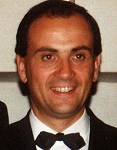
Speech of Serge MICHEL, vice-president of the CICT,
on the occasion of the commemoration of the fiftieth birthday of the CICT
Ladies and Gentlemen, my dear friends,
Before mentioning the CICT anniversary we celebrate this evening as part of the 70th anniversary of UNICA, I would like first of all, very simply but very sincerely to greet you as a friend of UNICA. My dear friends, I am very happy to be here, to meet each and everyone of you, to share the atmosphere of the big family of UNICA, and I wanted to tell you that.
It is also as Vice-President of CICT (the International Council for Cinema, Television and Audiovisual Communication) that I am speaking to you tonight, representing the president of IFTC, who could not come to Hammamet. The President, Inoussa Ousseini, Ambassador Head of Delegation of Niger to UNESCO, would have liked to be here and he asked me to convey his regrets and his warmest greetings. I represent him as best I can on the occasion of this anniversary.
CICT reaches fifty this year and I want to tell you briefly about its history, but also share some news and projects.
The history of the CICT first
It began in the mid-1950s, when talks were held at UNESCO, which brought together the most prominent personalities of world cinema and television, including the researcher - ethnographer - filmmaker Jean Rouch. These talks led to the creation of an international centre of photography and moving pictures and then, during the UNESCO General Conference in New Delhi, the proposed establishment of an international organisation of film and television, non-profit dedicated primarily to education, culture and development of the international associations concerned. This project was proposed by the Italian delegation to UNESCO, with Professor Mario Verdone, and on 23 October 1958 the CICT charter was signed
All major federations and international associations, authors, filmmakers, historians and critics, archives, film schools, art film clubs and amateur movies ... are founding members.
UNICA was one of these founding members and the filmmaker Jean-Benoit Lévy, as the first Executive Director of the CICT, signed on 23 February 1959 a letter recognising UNICA's admission as a member of the Council. That was ratified by an Extraordinary General Meeting of Council on 16 and 17 February 1959.
Since then, UNICA has been a permanent member, recognised and appreciated by the Council. Let me read an excerpt from a notice in the Official Gazette of the Federation of French cinema club fans after our admission as a member of IFTC:
"A great news which will delight all who love and practice amateur film. UNICA is officially a member of CICT which now represents to UNESCO all audiovisual activities. This admission, passed unanimously, is a significant and crucial event in amateur film. We can make our presence felt, to show our open ideals, promote international trade, establish a standardisation of techniques and processes, approaching the masters of professional or scientific Cinema, Television for propaganda in favour of this "universal language" that is film and who, precisely because as enthusiasts we are freed from all commercial constraints, we can express our ideas more freely. ... We wish to express our gratitude to Mr. Keim, attached to UNESCO, and M . Lévy, CEO, who kindly welcomed us, and demonstrated a very sympathetic interest and, shall we say, real affection to our friends, amateur filmmakers. "
I can testify to you tonight that the affection toward us remains - as does interest in our activities and our views as film enthusiasts about the world around us.
CICT is a kind of network of networks! It represents the diversity of people and professionals working in film. It provides links between member agencies, and a very important link with UNESCO.
During its fifty years, CICT had to evolve, adapt (to take on board the development of television and the emergence of new media). It has experienced varying periods of achievement and is now in a period where activity is growing and its projects are numerous.
I will simply mention three activities that illustrate the current CICT:
A first in bilateral activities with other members of CICT, the "A poster of the world" arrangement where films from UNICA, are accepted in the context of the international conferences of Image and Science, which has since 1999 caused eight films to enter the "cinematheque of humanity" collection. This action is a large part of out work to safeguard the heritage and one we want to develop.
A second activity which involves several organizations in CICT is the proposed creation of a Mediterranean Multimedia Library in Italy, in the province of Lecce, Puglia region. A multifunctional videotheque of the Mediterranean where we will archive, catalogue and open to consultation the various forms of intangible heritage: movies, DVD, TV ... I mentioned this project here, a few dozen meters from the Mediterranean, and it cannot fail to interest you.
A third action was launched by UNESCO in 2002 on the UK's proposal for a network of creative cities in seven fields: literature, cinema, music, crafts, design, digital arts and gastronomy. In considering applications from cities interested in cinema, UNESCO has consulted the CICT, but also directly asked two organisations including UNICA to join the selection panel and this is further proof of the credibility of UNICA and the confidence UNESCO vests in us.
Some of the films which have been awarded the CICT Prize.
|
The Delmiro de Caralt Prize
To leave time for the prize presentations, I will not expand any more, my dear friends, on the many actions to which we can contribute, and I will return at the conclusion of the event tonight, to introduce an awardwhich marks the commemoration of the fiftieth anniversary of CICT: the CICT-UNESCO Delmiro de Caralt Awards, which I shall be delighted to present.
For this fiftieth birthday, and for the years to come, the CICT wished that this prize of the CICT is associated with the name of a personality having marked the history of UNICA. The general assembly approved on 3rd July the proposition that has been made him to honor Delmiro de Caralt.
A textile engineer and passionate film director himself, Delmiro de Caralt had a great influence on the first forty years of UNICA. He was founder of the Center Excursionista de Catalunya, from which we have a distinguished member in UNICA in the person of our friend Jan Baca. Delmiro de Caralt was the delegate for Spain for forty years. In 1971, one year after the Congress of Sousse, he handed the baton to Joe Queraltó, who died a short time ago.
During these forty years, in addition to his work and activities for amateur film Delmiro de Caralt assembled a formidable collection of devices and literature on film. In 1972 he established the foundation that bears his name in Barcelona. He was actively involved it it until his death in 1990 (aged almost ninety). It is still today the largest library and cinema museum in Spain. I myself had the pleasure of meeting Delmiro de Caralt in Barcelona in 1987 and can assure you, as would all those who knew him, he was a great man whose work for the amateur film been major contribution to UNICA.
The Delmiro de Caralt Prize demonstrates the strength of the links between the CICT and UNICA, and I ask you, ladies and gentlemen, to wish CUCT a happy birthday.
Long live UNICA! Long live CICT and good cooperation between CICT and UNICA!
Thank you for your attention and I also wish to thank, on behalf of CICT, the federation of Tunisian film for the beautiful birthday cake which is now coming on stage to mark the event.
Thank you all, and congratulations to the organizing team of the 70th congress of UNICA.
- Serge Michel
The first Delmiro de Caralt Prize was awarded to Brücken bauen by Bernhard Hausberger.
